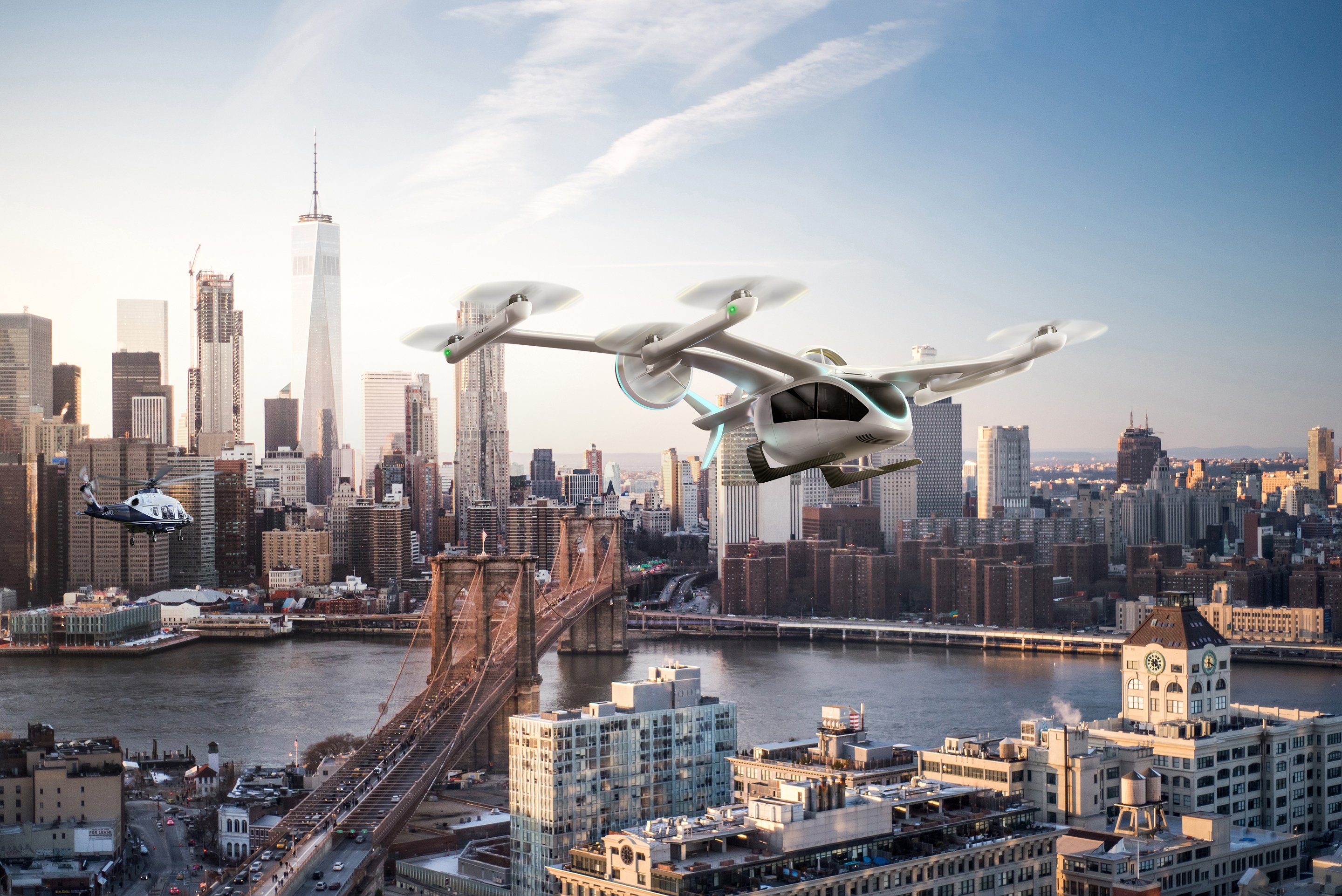Click Here to View This Page on Production Frontend
Click Here to Export Node Content
Click Here to View Printer-Friendly Version (Raw Backend)
Note: front-end display has links to styled print versions.
Content Node ID: 419601
Legislation proposed in the New York City Council would eliminate “non-essential” helicopter flights from the two city-owned heliports in the Wall Street area and at East 34th Street. A related New York State bill that further increases pressure on helicopter operators is awaiting the signature of Governor Kathy Hochul. It would allow individual citizens to sue helicopter operators who “create an unreasonable level of sustained noise at ground level.”
Neither bill specifically mentions the eVTOL aircraft that could start entering service in major cities by 2024. However, the bipartisan political support assembled to back the legislation suggests that the industry has more work to do to convince some cities to accept the new mode of transportation and how it differs from existing rotorcraft services in terms of noise.
The New York City legislation has been advanced by a group called Stop the Chop NY/NJ, which is looking to ban large numbers of helicopter flights across the wider metropolitan area. The legislation applies to “rotary-wing aircraft capable of vertical takeoff and landing.” The only operations defined as essential, and therefore permissible, would be those by the U.S. military, fire departments, emergency services, police, and newsgathering organizations.
Evidently, private sightseeing charters and air taxi services would not be permitted. The group did not respond to a request from FutureFlight to clarify whether eVTOL aircraft would be exempt from the restrictions.
The New York State legislation, which both houses of the legislature approved in late May, also amends the Hudson River Park Act to ban non-essential helicopter traffic from the park. The West 30th Street heliport is owned by the state via the Hudson River Park Trust and the legislation amends the New York City charter to prohibit the city from entering into concession agreements that allow for non-essential use of the city’s heliports.
Under the state bill, “non-essential” flights are defined as anything other than for public health and safety, law enforcement, emergency response, disaster response, heavy lifting for construction, research, or newsgathering. The bill would apply to all tourism flights; photo flights not conducted by a licensed television, film, or production company; and helicopters adhering to routes preapproved by the FAA. It would take effect 30 days after it receives Hochul's signature.
The New York City legislation was put before the council weeks after the city’s Economic Development Corp. issued a request for proposal for a new operator bid for the Wall Street heliport as the current lease, with Saker Aviation, will soon expire. Saker noted in its most recent 10-K form filed with the U.S. Securities and Exchange Commission that demand for sightseeing flights from Wall Street from July 2020 through April 2022 has been "much lower" than before.
In the early stages of eVTOL operations, the all-electric aircraft are expected to use current heliports. However, plans are being developed for dedicated vertiports that could be part of existing buildings, such as parking lots.
